One of the most important rules when it comes to eating healthy and keeping your liver healthy is to cook your own food.
By doing so, you control the ingredients that are used and you know that you will always choose the healthiest, safest options possible.
And since you are doing this – and especially if you are trying to reverse fatty liver – cooking without oil or any other type of added fat makes your food even healthier, without losing that much in terms of taste.
This means that you can greatly reduce (or completely eliminate) the use of oil when cooking, therefore reducing the amount of unhealthy fat your body receives.
Is fat free cooking (or oil free cooking) really possible?
The main problem today when it comes to the food that we eat is that all dishes are cooked using more fat than it’s needed.
Everything that we eat in a restaurant, all recipes in the cookbooks or wherever, EVERYTHING requires you to use oil or fat. And a lot of it!
There is indeed one big reason why we add a lot of fat/oil when we cook. The foods taste better, they make you feel full for longer… and some fat is still required for our bodies to function properly.
But is it really impossible to eat foods cooked without using oil? Do these foods really taste horrible? Are they unhealthy, since everybody adds fat to everything?
Of course not, on the contrary! And I’m saying this after doing both research and a lot of personal testing.
Ever since being diagnosed with a fatty liver, I have reduced my fat consumption by probably 90% when it comes to added fat to anything that I eat.
This means that, whenever I cook at home, I never add any extra oil or any type of additional fat in most dishes that I cook. The only exception is salads where I still add 1 tablespoon extra virgin olive oil per two servings.
But… does the food still taste good?
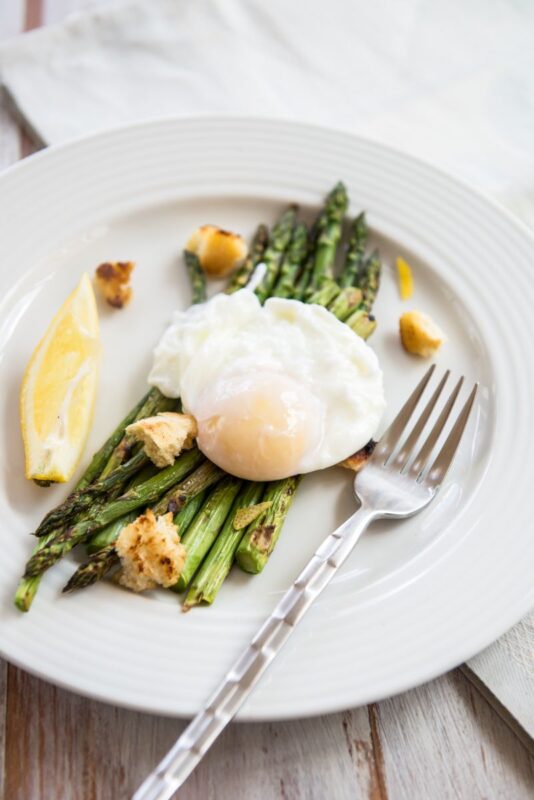
To be honest, most of them taste about the same. Some foods will take some adjusting, depending on how much oil and fat you were used to consuming.
For example, you won’t be eating fries anymore – and baked potatoes without added fat (or boiled ones) will taste a bit different. Many of the other dishes will, but without them becoming horrible or impossible to eat.
The best part? You will be eating healthier and your entire body – especially the liver – will be thankful for that.
UPDATE: After reversing my fatty liver, I started adding some oil when cooking, when needed. I still use minimal amounts though – mostly to make sure that I get all the healthy fats (and a bit of extra flavor) from my foods.
Why should you stop cooking with oil (or reduce it drastically) if you have a fatty liver?
Well, it’s pretty much common sense honestly: you have an excess of fat in your body, if you’ve already been diagnosed with a fatty liver disease, and adding extra fat doesn’t help.
Oil is pure fat and even though there are some oils that are healthier than others, it’s still fat that we’re talking about and nothing in excess is healthy when it comes to a fatty liver.
This extends to all types of fat, so replacing oils with butter or lard or anything won’t be a better option.
Remember, though, that simply cutting out the fat and adding tons of carbohydrates (or sugar) instead is not recommended either since sugar is really bad for NAFLD.
At the same time, you shouldn’t completely eliminate fat from your diet. Fat has an important role in maintaining one’s health and keeping our bodies functioning properly.
But we only need small amounts of it, which we normally get from meats, dairy, nuts and seeds, avocados, tasty chocolate and so on… basically, our regular diet.
Hence the need to start cooking without extra oil or fat – or at the very least, greatly reducing the amount of added fat we use when cooking.
How much fat should you consume per day?
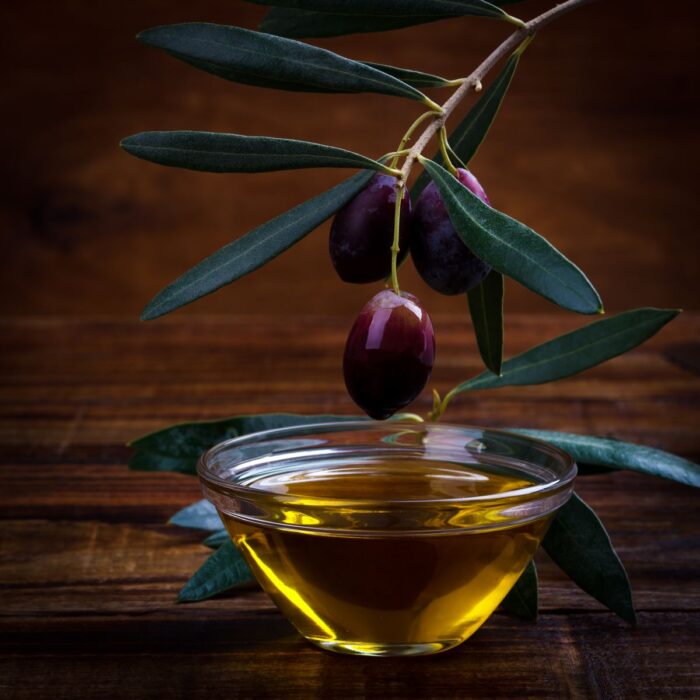
The golden rule of thumb is that a healthy human should ideally consume about 20 to 30 percent of the daily caloric intake as fat.
One gram of fat represents 9 calories, so if you want to find your required number, simply divide 20% of the amount of calories you have daily by 9.
For a generic 2,000 calories diet, this means that one should ideally consume anything between 44 to 66 grams of fat per day.
However, if you are dealing with a fatty liver too, I would really recommend sticking to the low end to be healthy.
Also, the type of fat you’re eating is extremely important.
Monounsaturated fat and polyunsaturated fat (called unsaturated fats) are the healthy fats you should be consuming, and should represent the highest intake of fats daily.
Saturated fats are the bad ones, and they should always be kept to a minimum. Trans fats are the most dangerous and they should be completely taken out of your diet.
You can read more about the dangers of consuming saturated fats on Medline Plus.
Now, 44 grams of fat per day might seem a lot – but as strange as that sounds, it’s extremely easy to consume a lot more!
Having in mind that one tablespoon of olive oil weights about 14 grams (and it’s all fat), while a regular glass of 3% fat milk gives us 7.5 grams of fat – I guess it’s pretty easy to see that normally, we can easily end up consuming a lot more than what’s recommended even if we think that we’re eating healthy.
And this is why you should stop cooking foods with extra oil or any type of added fat – because we are normally using too much and feeding our body with unnecessary fat.
The extra fat that harms our body! Even the “good” oils will become bad if they’re consumed in excess. So balance is key here!
Going “oil free” when it comes to cooking doesn’t mean that you should completely stop consuming fat!
Fat is still required for our body to function properly, as we discussed already, but it’s that excess fat, unhealthy fat that you need to stop forcing into your body.
I might still be a bit under some days, but my body has enough fat reserves not to worry about this for a few years, unfortunately… and probably the same can be said about most people diagnosed with a fatty liver disease.
Is oil-free cooked food that horrible?
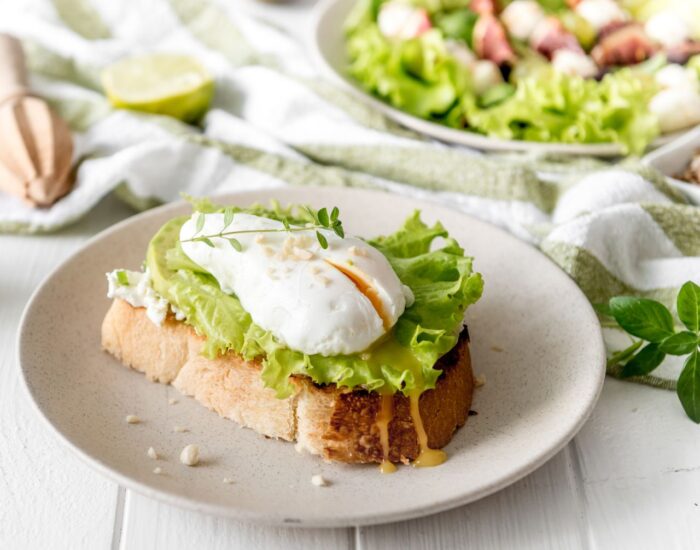
Honestly, it’s not. For the first six months after being diagnosed with a fatty liver, I did not add any extra fat to anything that I have cooked.
I boiled and steamed or baked the ingredients when creating more complex dishes, replacing oil in recipes with… plain water.
None of the soups and broths that I made ever required extra oil (and if I use meat, I make sure it’s skinned and the leanest possible) and they are just as delicious.
And everything else tastes mostly the same or at least acceptable – just give it a try for a few days and you will see what I’m talking about!
You will actually get to see for yourself – after the first one, maybe one and a half months of drastically reducing the amount of oil you consume – that we do use too much oil when cooking.
I still remember that, some six months after starting with my fatty liver diet, I rewarded myself with my favorite pizza as the test results were so encouraging (spoiler alert: I managed to reverse my fatty liver in 18 months!)
I usually ate a whole pepperoni pizza without a problem, but now I found everything way too oily and greasy and gross and I could only eat half of that. I was full and didn’t feel good about it either, to be honest.
I can’t deny it – I enjoyed the taste, but I simply felt that everything’s way too oily. Less cheese, less pepperoni and it would’ve still been great!
I actually started to make pizza at home afterwards to keep the ingredients in check.
Also, I was forced to eat out once after the pizza event and even though I tried to pick the healthiest sounding dish which was not a salad, I still found it way too oily.
You only get to realize how unhealthy we eat after following a 100% healthy diet for a while…
You will get there yourself and you will see that we’re not doing any good simply by adding extra oil just because we think it tastes better. It’s actually part of what’s making us sick!
A solid option to cooking without added oil is switching to air fried food. Check out my article on that topic, although I don’t think you really have to make the switch, honestly.
How to cook without oil or with as little oil as possible?
Basically, simply not adding the oil to any recipe you prepare would be all that you need to do.
In most cases, replacing that with plain water will work well. In some cases, you simply don’t have to add anything as a replacement.
If you don’t feel completely comfortable about this, go for this approach: reduce the quantity of oil used by half for one week, then reduce it again by half for one more week.
Afterwards, try cooking without oil and you will see it’s actually easy and the foods still taste good.
If you disagree, then simply stick to using as little oil or added fat as possible. I believe that reducing the extra fat recommended by recipes in half will be a good starting point, but it would be even better if you could use just 25% of that.
It’s still much better that using it all!
Also, if you want some extra ideas of healthy foods to cook for your fatty liver, this cookbook (affiliate link) has a lot of oil free recipes that you can try out. They’re also no salt, no sugar types.
It’s a general, vegetarian cook book and not one created specifically for those diagnosed with a fatty liver disease, but most of the recipes there are really safe for the liver… and delicious.
Cooking without oil update: My “9 years after” update
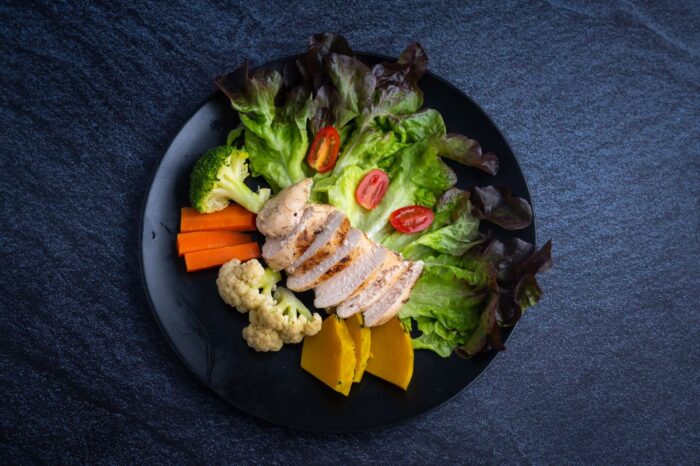
It’s been over 9 years now since I’ve been diagnosed with a fatty liver and I also managed to reverse it in the mean time (it took me one year and a half).
I decided to write this update to tell you that I am still, for the most part, following the rules I set all these years ago and presented in the article above.
Yes, even now after reversing NAFLD / MASLD, I am cooking without adding too much extra oil or any type of fat to my food.
I still cook soups and everything that I bake without oil. I also cook most of the foods without adding a single drop of extra oil and here I am, nine years later, happier than ever and healthier than ever. This can definitely be done!
However, I think that you can still do it without necessarily going to the extreme that I did: even I use some additional oil for cooking when needed.
In some cases, when preparing pancakes (yes, I allow myself one or two every now and then) or an omelette and other dishes that I can’t really think about right now, I use a tiny amount of oil.
I have also started to sometimes add a tablespoon of oil in my food after cooking it to improve the taste.
Not in all foods, but some stews and dishes benefit from the tiny amount of oil that I add when they’re done cooking. And that teaspoon covers 4-5 servings!
I have only on a few occasions eaten fried foods since being diagnosed all those years ago and even though I still crave French fries or fried chicken every now and then, the oil-free alternatives are good enough to keep me satisfied. I know I am doing this for my own well being.
What I am trying to say is that after all these years, I know that we’re at a point where we use too much fat when cooking – as well as too much sugar.
Most of our foods don’t need any of these two things that are also the most harmful ingredients when it comes to keeping your liver healthy. I was forced to understand this by being diagnosed with a fatty liver and hopefully you agree now as well.
Greasy food, fried food, fatty food… these are not things that you need in your life – even if you’re still healthy now when you’re reading this.
Eat everything with moderation, keep an eye on the numbers (without getting too obsessed with counting calories), cut off oil from foods that are just as delicious without it and avoid eating the ones that can’t be prepared without a lot of oil. In reality, that number is really low.
It might sound difficult today and it will reduce your options when eating out or entertaining guests, but you’re doing all these for your well being and I truly believe that you agree that this is what matters the most!
And if you want to get serious about reversing your condition, make sure to check out my Reverse Your Fatty Liver Book review. This is, by far, the best program for learning what has to be done to regain your health.

I was diagnosed with a fatty liver back in 2014 and managed to reverse it by mid-2015. Since then, I’ve been studying it, continuously updating my knowledge with the latest scientific findings and practical approaches to give others the help they need to reverse their condition.
My approach to managing fatty liver is holistic, balancing scientifically-backed information with real-life, practical advice based on personal, direct experience.
I am also the admin of the Fatty Liver Support Group on Facebook and the Fatty Liver Subreddit.

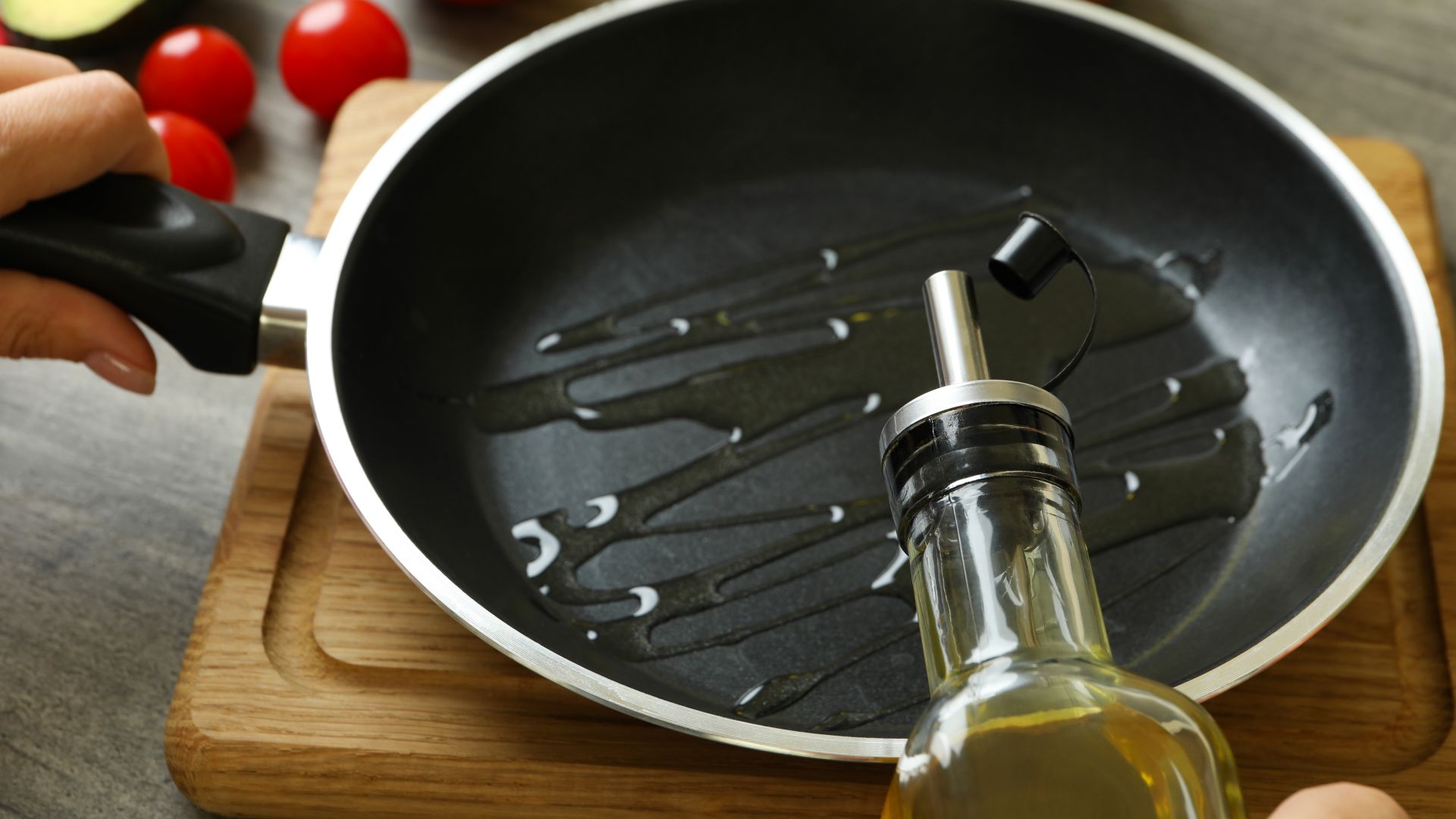
I normally roast veggies in the oven with some avocado oil…is that not good?
Very small amounts of oil are not harmful, but make sure to keep fat consumption under control.